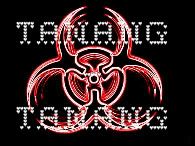HEART FAILURE
Tuesday, March 4, 2008
 Everybody knows that heart problems is the No.1 killer in the world....most of human population in this world will get heart failure when their age reach 40 onwards...but then lately this disease had capture it victim at early age like early 30's and what makes it more serious when the victim had no family history with this disease and he might get it maybe because he failed to practise a healthy way of life.Some says that we are what we eat....that explain everything.If you don't eat healthy your life might be at risk....Below are a few fact about HEART DISEASE that might be usefull to us....if you find out any of this symtomes on you you better gat your heart check or refer yourself to IJN(National Hearts Institution).....
Everybody knows that heart problems is the No.1 killer in the world....most of human population in this world will get heart failure when their age reach 40 onwards...but then lately this disease had capture it victim at early age like early 30's and what makes it more serious when the victim had no family history with this disease and he might get it maybe because he failed to practise a healthy way of life.Some says that we are what we eat....that explain everything.If you don't eat healthy your life might be at risk....Below are a few fact about HEART DISEASE that might be usefull to us....if you find out any of this symtomes on you you better gat your heart check or refer yourself to IJN(National Hearts Institution).....Introduction
Heart disease, also known as cardiovascular disease, includes a number of conditions affecting the heart: congestive heart failure, congenital heart disease, and heart attack, among others. If you don’t know the symptoms, you could be at risk and not even know it. Heart disease is the leading cause of death for men and women in the U.S. Keys to prevention include quitting smoking, improving cholesterol, controlling high blood pressure, maintaining a healthy weight, and exercising.

Symptoms
Symptoms of Heart Disease
Here's a fast, easy-to-understand guide to the symptoms of each type of heart disease.
Warning Signs
When to Call the Doctor
If you or a loved one has heart disease, when must you call the doctor? When should you head for the emergency room? Click here for clear, fast information.
Related Web Site: Heart Attack Warning Signs
Don't wait, click here for heart attack warning signs. For easy reference, you'll also find stroke and cardiac arrest warning signs -- and no-nonsense advice on what to do now. This link will take you to the American Heart Association.
Related Web Site: Women and Heart Disease Symptoms
Women are more likely than men to have a heart attack without chest pain. Read more data on gender-specific heart disease. This link takes you to another web site.
Angina
Doctors call it angina pectoris. You call it chest pain. It may feel like indigestion -- or like an elephant just stepped on your chest. Here's what it means.
Types
Coronary Artery Disease
Coronary artery disease is America's No.1 killer, affecting more than 13 million Americans.
Tool: CAD
View this illustrative guide to coronary artery disease.
Heart Attack
You know there's nothing funny about a heart attack. There's a lot more to learn. Here's what you need to know: no more, no less.
Irregular Heart Rhythm
Irregular heart rhythm -- arrhythmia -- is when your heart doesn't keep up a good beat. Learn what it means here.
Atrial Fibrillation
It's the most common kind of irregular heart beat. Here's where to find out what it is, and what to do about it.
Tool: Heart Rhythm Disorders
Irregular heart rhythms can cause the pumping function of the heart to fail. See how.
Heart Valve Disease
You may not know what a heart valve is -- until it stops working right. It's a common form of heart disease. Here's an illustrated guide.
Patent Ductus Arteriosus
This congenital heart defect is often seen in premature babies. Fortunately the abnormal opening between major heart vessels is readily treatable. Read more.
Sudden Cardiac Death
This is the cause of half of all heart disease deaths. Find out why here.
Congenital Heart Disease
Not everyone gets heart disease. Some are born with it. Here are the facts on congenital heart disease.
Heart Muscle Disease
Heart muscle disease -- what doctors call cardiomyopathy -- is as serious as it sounds. Here's a brief overview.
Dilated Cardiomyopathy
Symptoms of DC --dilated cardiomyopathy -- can appear at any age. Learn to recognize them here.
Hypertrophic Cardiomyopathy
HCM -- hypertrophic cardiomyopathy -- is a thickening of the walls of the heart. Here's a brief overview.
Restrictive Cardiomyopathy
Restrictive cardiomyopathy is the rarest form of heart-muscle disease. Here's an overview.
Pericarditis
Did you know that your heart is held by a little sac? That sac -- the pericardium -- can get infected. It's called pericarditis or pericardial disease. Here's more.
Pericardial Effusion
Fluid around the heart can be caused by various types of infection/inflammation or cancer, kidney disease or heart surgery. This fluid can impair heart function. Read more in this technical article written for doctors.
Marfan Syndrome
This inherited genetic defect weakens connective tissues -- including those in the heart. Click here to learn more.
To know more about TREATMENT and CARE fo this disease please CLICK HERE

















































































































March 5, 2008 at 4:18 AM
Wahhh..banyak info pasal kesihatan/perubatan. Cikgu Bio ke?